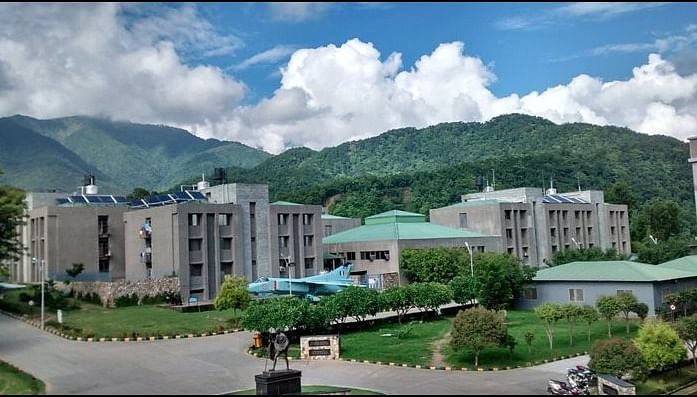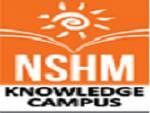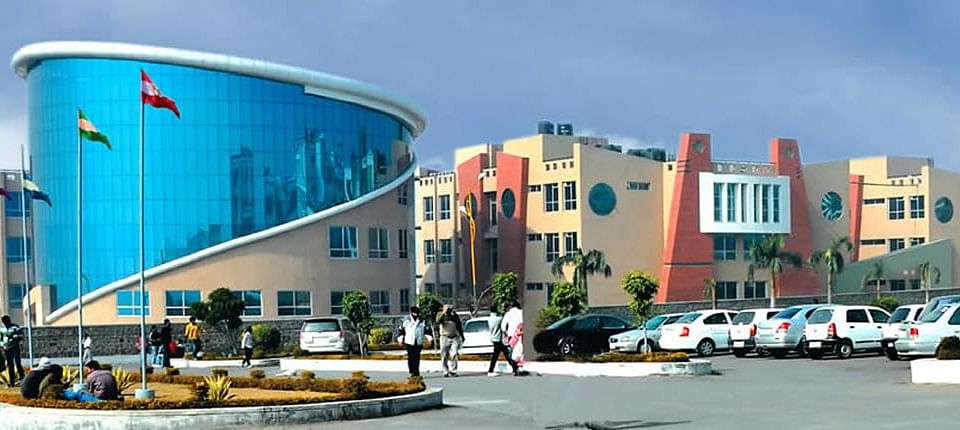B.Sc Nutrition Syllabus and Subjects

BSc Nutrition course curriculum includes subjects such as human nutrition, nutritional biochemistry, food quality & analysis, etc., among others, which aid in providing advanced knowledge and understanding of current issues and trends in the industry. BSc Nutrition job scope is extensive, ranging from the medical representative, and nutrition advisor to the researcher.
Table of Contents
- Semester Wise BSc Nutrition Syllabus
- BSc Nutrition Subjects
- BSc Nutrition Course Structure
- BSc Nutrition Teaching Methodology and Techniques
- BSc Nutrition Course Projects
- BSc Nutrition Course Books
Semester Wise BSc Nutrition Syllabus
The BSc Nutrition syllabus covers all the topics needed to understand the course. The BSc Nutrition course is divided into six semesters and covers a wide range of topics. The BSc Nutrition subjects for each semester are listed below:
BSc Nutrition First Year Syllabus
The first-year subjects for the BSc Nutrition are listed in the table below, divided into the first and second semesters:
|
Semester I |
Semester II |
|
Food Chemistry |
Public Health and Nutrition -II |
|
Microbiology |
Nutritional Biochemistry |
|
Introduction to Food & Nutrition |
Maternal and Child Health |
|
Computer Fundamentals |
Human Physiology |
|
Public Health and Nutrition -I |
Family Meal Planning 1 |
|
Communication Skills |
Cultural Education |
BSc Nutrition Second Year Syllabus
The second-year subjects for the BSc Nutrition are listed in the table below, divided into the third and fourth semesters:
|
Semester III |
Semester IV |
|
Food Microbiology |
Food Science |
|
Food Quality & Assurance |
Introduction to Food Preservation |
|
Business Statistics |
Importance of a Balance Diet |
|
Environmental Studies |
Fundamentals of Bakery & Confectionary |
|
Family Meal Planning-II |
Introduction to Food Quality Check Methods |
BSc Nutrition Third Year Syllabus
The third-year subjects for the BSc Nutrition are listed in the table below, divided into the fifth and sixth semesters:
|
Semester V |
Semester VI |
|
Ethics & Environmental Studies |
Food Biotechnology and Preservers |
|
Dietetics 1 |
Dietetics 2 |
|
Food Packaging Methodologies |
Food Service Management |
|
Food Marketing Techniques |
Diet & Patient Counseling |
|
Project Work |
Internship |
BSc Nutrition Subjects
Over the course of three years, students in the BSc Nutrition course get a broad understanding of a range of subjects. The course is structured into core and elective topics. The following subjects will be covered in the BSc Nutrition course:
BSc Nutrition Core Subjects
The following are the core BSc Nutrition subjects that all BSc Nutrition students must take:
- Food Chemistry
- Microbiology
- Introduction to Food & Nutrition
- Nutritional Biochemistry
- Food Science
- Public Health and Nutrition
- Food Quality & Assurance
BSc Nutrition Elective Subjects
The following are the core BSc Nutrition subjects that all BSc Nutrition students can take:
- Community Water and Waste Management
- Childhood Disability and Social Act
- Sports Nutrition
- The Food Service Management
- The Bakery Science
- Non-Formal/Adult/Life-Long Education
BSc Nutrition Course Structure
The BSc Nutrition course is designed in a way that supports students' learning, exposure to practical situations, and development of critical skill sets. Over the course of three years, the course is divided into core and elective subjects. The sections of the BSc Nutrition course are as follows:
- VI Semesters
- Core Subjects
- Practicals
- Elective Subjects
- Internship
- Seminars
- Project Work
BSc Nutrition Teaching Methodology and Techniques
To fully comprehend the course, one must have a firm understanding of BSc Nutrition teaching strategies and techniques. In order to improve the efficiency of the curriculum, case studies, group projects, and other types of action-based learning are included in the BSc Nutrition course in addition to conventional lectures. The BSc Nutrition course employs a variety of teaching methodologies, some of which are listed below:
- Practical sessions
- Internship/Training
- Seminars
- Projects
- Regular Lectures
- Group Discussions
BSc Nutrition Projects
Team or individual projects gain a significant amount of focus in the BSc Nutrition course since they give teachers the chance to assess students' performance and subject understanding. Some of the most common projects for BSc Nutrition are listed below:
- How healthy foods can help deal with mental health issues
- Sleep and nutrition –how they relate to each other
- How healthy eating impacts a college athlete’s performance
- Study on Cannabinoids as nutritional supplements
BSc Nutrition Books
BSc Nutrition books give students a broad overview of the subject matter as well as a detailed analysis of their particular areas of expertise. The following are some of the BSc Nutrition books for reference:
|
Name of Book |
Author |
|
Principles and Techniques of Practical Biochemistry |
Wilson K and Walker J |
|
Essentials of Human Nutrition |
Mann J and TruswellS |
|
Essentials of Food and Nutrition |
Swaminathan |
|
Fundamentals of Foods, Nutrition and Diet Therapy |
SR Mudambi |
|
Concise Medical Physiology |
SK Chaudhuri |






















